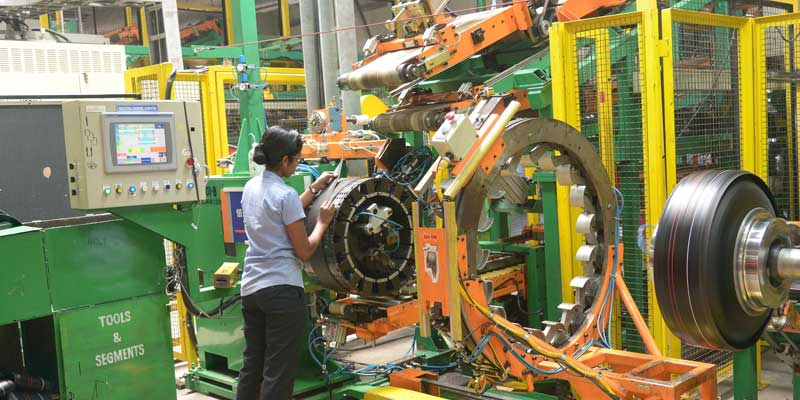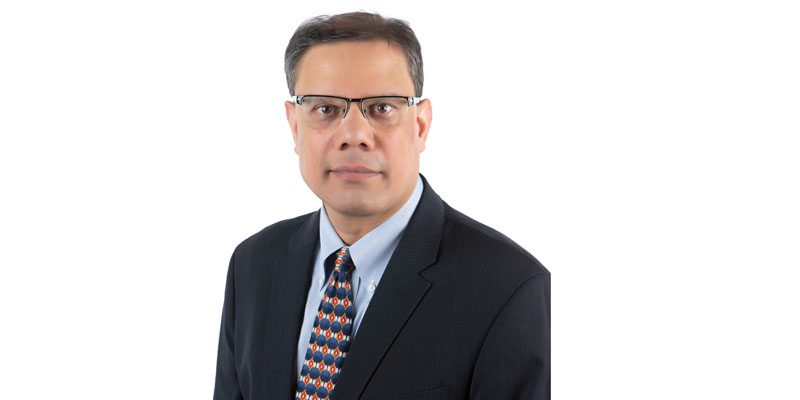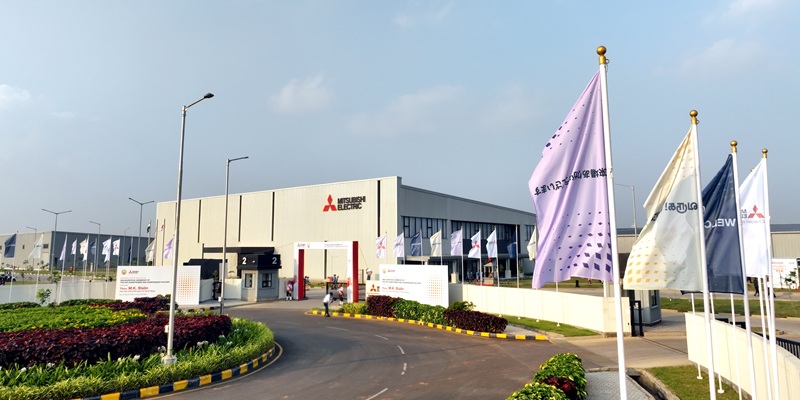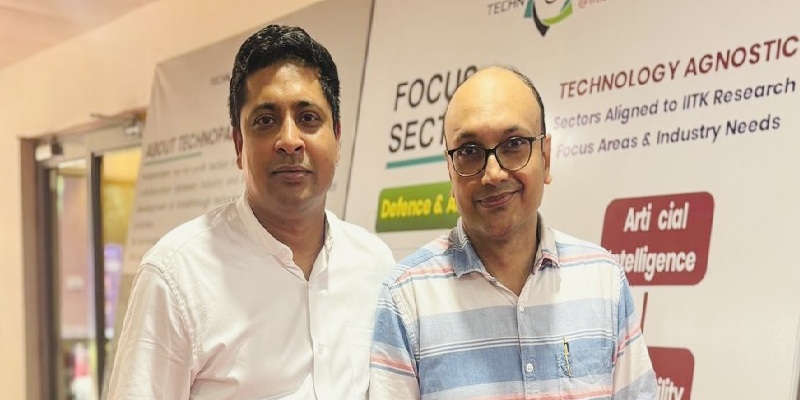Schedule a Call Back
CEAT excelling manufacturing with IR4 technologies
 Articles
Articles- Apr 01,24

In January 2023, CEAT Ltd became a part of the prestigious Global Lighthouse Network when its Halol tyre manufacturing facility was designated by the World Economic Forum (WEF) as an Advanced Fourth Industrial Revolution (4IR) Lighthouse. With this, CEAT became the first tyre company globally to be recognised for adopting advanced 4IR technologies to digitally transform operations. “We have received Lighthouse designation for our Halol plant. Lighthouse Certification is conferred upon an individual factory or unit which have scaled Industry 4.0 use cases across its shop floor. It signifies the fact that the plant has implemented advanced 4IR technology and developed use cases which have delivered business benefits and have improved the plant operational KPI (key performance indicator). We are the first tyre brand in the world to receive this prestigious honour from the World Economic Forum,” says Jayasankar Kuruppal, Senior Vice President, Manufacturing, CEAT, with proud.
CEAT, the flagship company of RPG Enterprises, has been a consistent performer all these years. In FY23, the company recorded revenue of Rs 11,263 crores - up by 20.9 per cent compared to Rs 9313 in FY22. The company, which has a workforce of close to 10,000 employees, exports to more than 110 countries in America, Europe, Middle East and South East Asia. CEAT, one of India’s leading tyre manufacturers, produces more than 41 million high-performance tyres, and caters to various segments like 2-3 wheelers, passenger and utility vehicles, commercial vehicles and off-highway vehicles.
Ceat has six manufacturing facilities located at Bhandup, Nashik, Halol, Nagpur, Ambernath, and Chennai. Bhandup and Nashik plants specialise in crafting high-quality truck tyres, LCV tyres utilising bias technology, and off road tyres, including those for farm vehicles. The Halol facility is dedicated to the production of truck bus radial tyres and passenger car radial tyres. In Nagpur, the company focuses on crafting top-of-the-line 2-wheeler tyres, while produces passenger car radial tyres and motorcycle radial tyres in Chennai. The Ambernath plant is dedicated to the production of off-road tyres.
“Three of our state-of-the-art facilities - Nagpur, Ambernath, and Chennai - have been established within the last seven years. This expansion marks a significant stride in our journey towards meeting the evolving demands of the market and exceeding expectations. Catering to a diverse clientele spanning domestic aftermarket, original equipment manufacturers, and international markets, we continuously enhance our capacities year after year. Not only are we expanding our footprint, but we are also pioneering change in the industry's landscape. We proudly lead the way as the first tyre company in the nation to integrate female operators onto our shop floors. With a commendable gender diversity ratio of 20 per cent in our new factories, we are championing inclusivity and equality in the workplace,” states Kuruppal.
Maximising productivity
The company meticulously measures the plant operations against KPIs such as lead time for new product releases, specific energy consumption, yield, productivity, and overall factory cost. Modernisation has also helped in scaling up productivity and efficiency at its production sites. “Modernisation has definitely accrued business benefits for Ceat at the factory units and this has been one of its core criteria when selecting and implementing digital solutions,” says Kuruppal.
CEAT has been able to improve the plant throughput by nearly 20 per cent at one of its plants, through the implementation of AI solution in the critical mixing operation. He elaborates, “The usage of IoT sensors and advance analytics have enabled us to reduce our air and steam consumption, leading to over 15 per cent reduction in the overall energy requirements of the factory. With the implementation of anomaly detection models, we started to witness declining trends in the operational material waste which had reached its saturation limits. We were also able to reduce our scrap levels by more than 45 per cent. At an overall level, modernisation and the implementation of AI solutions helped us improve our manufacturing operation cost by nearly 15 per cent.”
All the new technologies implemented at CEAT plants have been driven by business needs and have added value to the process and improved the overall plant manufacturing cost. “We installed IoT based sensors on plant machinery; this along with predictive analytical solution has enabled us to get advance warning on premature equipment failure. We have implemented deep learning and ML based solutions along with visual analytics to identify and sort tyres based on the SKU type. We are working on a digital twin solution on shop floors to create the overall process model to simulate and optimise the plant operation. We have setup a VR platform to train our operators and have used AR for remote commissioning of equipment with people based across geographies,” explains Kuruppal.
In the recent years, the industry has witnessed lot of uncertainties (from customer as well as supplier side). So how is CEAT able to manage production efficiency in this highly volatile market? He answers, “We are future focused and always work on a 5-year rolling plan. This forms the basis for our planning on manufacturing capabilities and capacities, raw material supply, new product development and competency of our team.”
Charting sustainable growth
With the government’s thrust on infrastructure and India becoming an automotive hub, all major tyre companies have been expanding their capacities in India and this is expected to continue going forward. While CEAT is also enhancing its manufacturing capability, it is doing so with low carbon footprint. “Our sustainability vision is to halve our carbon footprint by 2030 and all our initiatives are in line with this vision. In manufacturing, our efforts are mostly on energy consumption reduction, water consumption reduction and usage of renewable energy. We have reduced our dependence on the usage of non-renewable energy sources by increasing renewable energy consumption derived from biomass and solar energy, implementing many energy saving initiatives by retrofitting, improving the efficiency of boilers, use of inexpensive and cleaner fuels such as piped gas. Today, 35-40 per cent of our total energy is through renewable energy resources,” concludes Kuruppal.
Some of the technological initiatives adopted by the company include;
Jayasankar Kuruppal, Sr VP, Manufacturing, CEAT At an overall level, modernisation and the implementation of AI solutions helped us improve our manufacturing operation cost by nearly 15 per cent.
Related Stories

India must focus on R&D alongside electronics manufacturing: Sanjay Huprikar
In this interview with Rakesh Rao, Sanjay Huprikar, Chief Global Officer of the Global Electronics Association, explores trends in global electronics industry, India’s manufacturing ambitions, and..
Read more
India is at a pivotal ‘Make in India’ inflection point: Manoj Patil
In this interview, Manoj Patil, Promoter and Managing Director, Patil Automation Limited, outlines its growth journey, capacity expansion, acquisitions, design-led approach, market challenges, and t..
Read more
Manufacturing Excellence in the Age of Integrated Automation and Industry 4.0
Manufacturing leadership is shifting from scale-driven efficiency to integrated, data-led systems that deliver resilience, sustainability and enterprise-wide performance through Industry 4.0 and aut..
Read moreRelated Products

Fanless Industrial Pc for Smart Manufacturing
CONTEC Launches BX-M4600 Series - Fanless Industrial PC for Smart Manufacturing.















